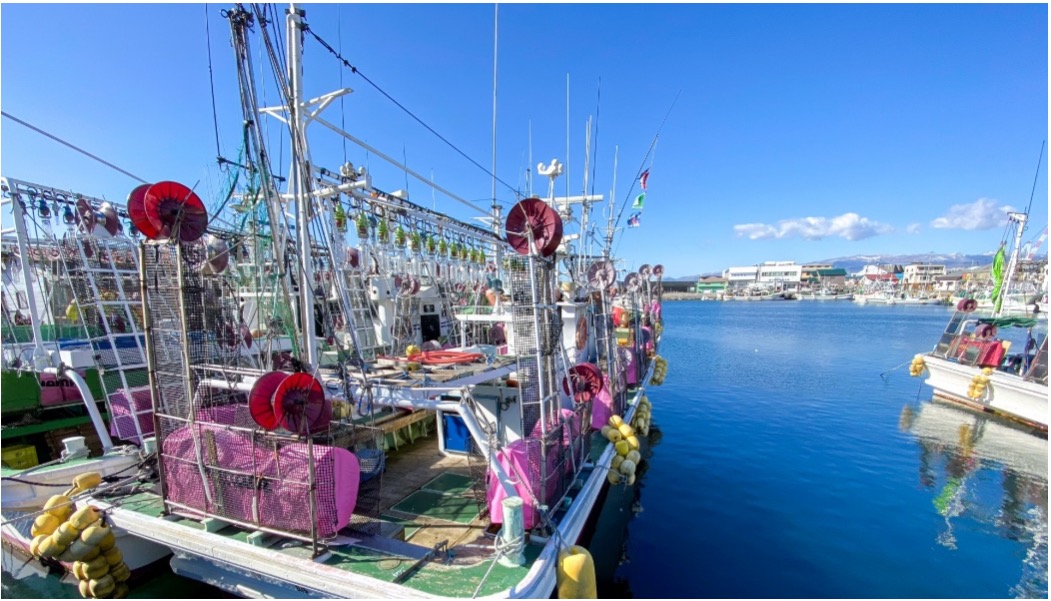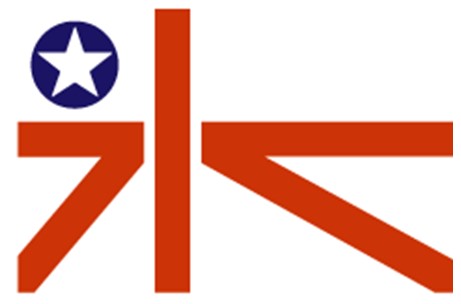JP
EN
for 2023 DEMOLA HOKKAIDO
SEASON 3rd

輝く未来へ、函館の水産物を極めよ! ~地域を輝かせる秘策とは?~
Strive for a Bright Future: Mastering Hakodate's Seafood! - What is the Secret Strategy to Illuminate the Region?
PARTNER

北海道大学大学院水産科学研究院・大学院水産科学院・水産学部
HOKKAIDO UNIVERSITY FISHERIES SCIENCES

PARTNER
北海道大学大学院水産科学研究院・大学院水産科学院・水産学部
HOKKAIDO UNIVERSITY FISHERIES SCIENCES
The Brief
「10年で10分の1」この数字は何を表しているでしょうか?実は函館の代名詞でもあるスルメイカの漁獲量変化です。一方、これまで主に西日本で水揚げされてきた暖水系の魚・ブリが函館で大量にとれるようになるなど、大きく変わる“海の変化への適応”が求められています。函館の美しい海と豊かな水産資源は、地域の宝であり、未来への可能性を秘めています。しかし、これからの時代において、その水産業をより一層輝かせ、持続可能な発展を遂げるためには、新たなアプローチと独創的なアイデアが求められます。
未利用魚/低利用魚などを含む函館独自の水産資源の高付加価値化、伝統や地域の歴史を含む観光資源との融合、地域住民や水産業者が一体となった地域外への水産物の販売や発信の強化など、函館という地域全体の発展を目指す具体的なアイデアはないでしょうか?函館の水産物を極め、地域の輝かしい未来に繋げるためのアイデアを一緒に考えましょう。
Category
【Better life & Wellbeing】
*DEMOLA Global HPにてテーマを探す際に使用してください。
The Background
北海道大学大学院水産科学研究院・大学院水産科学院・水産学部は、札幌農学校水産学科を源流として、海洋・水産に関する幅の広い様々な教育・研究、練習船「おしょろ丸」「うしお丸」や七飯淡水実験所等を用いた実学に側した教育・研究など、人と海を繋ぐサイエンスである 「水産科学」を実践しています。
SDGsの14番目の目標 「海洋と海洋資源を持続可能な開発に向けて保全し持続可能な形で利用する」。この目標と本学部は密接な関係を持っています。海の環境を守るとともに破壊されてしまった環境は修復・改善し,豊かな水産資源を次の世代に引き継ぐためにも,我が国,そして世界の水産業は持続可能な形に生まれ変わらなければなりません。私たちは水産業を持続可能な形に変えていくためのサイエンス 「水産科学」 の実践に挑みます。
The Challenge
近年、海の温暖化などの影響で函館近海の水産資源に大きな変化が起きています。これまで獲れていたものが獲れなくなったり、これまで獲れなかったものが獲れるようになったりしています。例えば、函館の名物であるイカの漁獲量は10年で10分の1と激減し、また、生産量日本一のマコンブの収穫量も20年で半減しています。一方でブリ・サバは漁獲量が激増しているものの、小さく脂がのっていないため値段がつかない、もともとブリ・サバの食文化(加工文化)が無いこともあり、イカやマコンブの減少分を補うまでには至っていません。
ブリ・サバ以外にも海の温暖化などの影響で漁獲量が増えているものがありますし、これまであまり利用されていなかったものもあり、これらの水産資源の高付加価値化の可能性は十分にあるのではないでしょうか?また、新たな水産資源の増養殖の可能性もあり、地域の水産資源を持続可能な方法で活用し、函館の水産業の魅力を最大限に引き出す方法はまだまだ残されているのではないでしょうか?
世界では、未利用魚種を使用した資源の効率的な活用と持続可能な食品供給の実現を目指すAqua Cultured Foods社や、未利用魚を利用して人工的な魚肉製品を生産するBlueNalu社など、未利用魚を持続可能な食品資源として活用するために革新的なアプローチをとるスタートアップも出てきていますが、まだまだ新しいアプローチの仕方があると思います。未利用魚/低利用魚などを含む函館独自の水産資源の高付加価値化、伝統や地域の歴史を含む観光資源との融合、地域住民や水産業者が一体となった地域外への水産物の販売や発信の強化など、函館の水産物を極め、地域の輝かしい未来に繋げるための新たなアプローチと独創的なアイデアを生み出すことで、函館という地域全体の発展を一緒に成し遂げていきましょう!
The Brief
"1/10 in these 10 years" represents the change in the catch volume of Surumeika (Japanese flying squid), which is also synonymous with Hakodate. On the other hand, there is a need for adaptation to substantial changes in the sea, such as the abundant catch of warmwater fish like Yellowtail (Buri), which has been predominantly caught in western Japan, becoming possible in Hakodate. The beautiful sea and abundant marine resources of Hakodate are treasures of the region, holding potential for the future. However, in the coming era, to further enhance its fisheries industry and achieve sustainable development, new approaches and innovative ideas are required.
Do you have any specific ideas for the development of the entire Hakodate region? This could include enhancing the added value of Hakodate's unique marine resources, including underutilized fish, integrating them with tourism resources that encompass tradition and local history, strengthening the sales and promotion of seafood beyond the region with the collaboration of local residents and fisheries stakeholders. Let's brainstorm together for ideas that will master Hakodate's seafood and connect it to a brilliant future for the region.
Category
【Better life & Wellbeing】
*Please use it to search for themes on DEMOLA Global HP .
The Background
The Graduate School of Fisheries Sciences at Hokkaido University, including the Graduate School of Fisheries Sciences and the School of Fisheries Sciences, has its origins in the Fisheries Science Department of Sapporo Agricultural School. It practices the science of "Fisheries Science," which connects people and the sea, through a wide range of education and research related to marine and fisheries, hands-on education and research utilizing training vessels like the Oshoro Maru and Ushio Maru, as well as the Nanae Freshwater Experimental Station.
The 14th goal of the Sustainable Development Goals (SDGs) aims to "conserve and sustainably use the oceans, seas, and marine resources for sustainable development." This goal is closely related to our department. In order to protect the marine environment and restore and enhance damaged ecosystems, as well as to pass on rich marine resources to the next generation, both our country and the world's fisheries industry have to transform into a sustainable form. We take on the challenge of practicing the science of "Fisheries Science" to transform the fisheries industry into a sustainable one.
The Challenge
In recent years, substantial changes have occurred in the fisheries resources of the Hakodate coastal area due to factors such as marine environmental change. Species that were previously abundant have become scarce, and those that were previously not caught are now being harvested. For instance, the catch volume of Surumeika, a specialty of Hakodate, has decreased to 1/10 in this decade. Similarly, the harvest of Kombu, which used to be the highest in Japan, has halved over the past 20 years. On the other hand, while the catch volume of yellowtail and mackerel has greatly increased, their small size and lack of fat content have led to low market value. Additionally, since there wasn't a well-established culture of consuming processed yellowtail and mackerel, these resources have not fully compensated for the decline in squid and Kombu.
Apart from yellowtail and mackerel, there are other species whose catch has increased due to the effects ofmarine environmental change. Some previously underutilized species also show potential. The possibility of adding value to these fisheries resources seems promising. Furthermore, the potential for the increased aquaculture of new marine resources exists, providing an opportunity to utilize the region's fisheries resources sustainably and maximize the appeal of Hakodate's fisheries industry.
Globally, startups like Aqua Cultured Foods and BlueNalu are emerging, focusing on efficient utilization of underutilized fish species for sustainable food supply. These companies employ innovative approaches to utilize underutilized fish as sustainable food resources. However, there is still room for further innovative approaches. By generating novel ideas and approaches, such as adding value to Hakodate's unique fisheries resources, integrating them with tourism resources that incorporate tradition and local history, and enhancing the sales and promotion of seafood beyond the region through collaboration with local residents and fisheries stakeholders, we can strive to master Hakodate's seafood and contribute to the overall development of the Hakodate region's bright future!